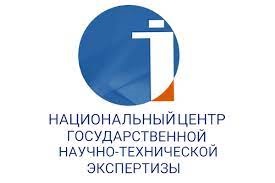LINGUOSYNERGETICS. ANALYSIS OF SCOPUS PUBLICATIONS
https://doi.org/10.55491/2411-6076-2025-3-174-186
Abstract
This article explores the meaning of the term “linguosynergetics”, which has gained increasing prominence in recent years. The aim of the study is to review the historical development of the concept of synergy, clarify the definition of “linguosynergetics”, and present the results of an analysis of publications indexed in the Scopus database from 2005 to 2025. Given the interdisciplinary nature of the concept of synergy, research conducted across various scientific domains clearly demonstrates its relevance and applicability. The theoretical significance of this study lies in the systematization of knowledge related to linguosynergetics and in fostering a deeper understanding of contemporary research in this field. The practical significance is reflected in the contribution to the development of a more comprehensive understanding of synergy and linguosynergetics, based on the analysis of scholarly publications and empirical research findings. Based on the study of the origin of the term, scientific literature, and a wide range of sources, the authors conclude that understanding the patterns of synergy is essential for investigating complex and open systems within society, including linguistic systems. The research methodology includes comparative-chronological and statistical analysis. The study is based on a review of hundreds of scholarly works published in the Scopus database between 2005 and 2025, focusing on synergy and linguosynergetics. The findings are illustrated using comparative diagrams.
About the Authors
K. TuilebayevaKazakhstan
Kuralay Tuilebayeva, Doctoral student,
Astana
L. Khusainova
Russian Federation
Lyailya Khusainova, Doctor of Philological Sciences, Professor
Ufa
References
1. Danilov, Ju.A. (2025) Sinergetika – nauka o samoorganizacii. Prekrasnyj mir nauki. [Jelektrondy resurs]. https://vikent.ru/enc/3717/ (date of Use: 15.03.2025). [Danilov, Yu.A. (2025) Synergetics – The Science of Self-Organization. The Wonderful World of Science [Electronic resource – https://vikent.ru/enc/3717/ (date of Use: 15.03.2025).] (in Russian)
2. Dombrovan, Т.Y (2016) Linguistic synergetics: origin, key concepts and application. Writings in Romance-Germanic Philology, 2(37), 95-107. https://doi.org/10.18524/2307-4604.2016.2(37).93771 (in English)
3. Dombrovan, T.Y. (2019) On the complex nature of a simple word: a diachronic linguosynergetics view. Scientific Bulletin of Kherson State University Series Germanic Studies and Intercultural Communication, (1), 36-42. https://doi.org/10.32999/ksu2663-3426/2019-1-5 (in English)
4. German, I.A (2007) Lingvosinergetika. Barnaul. 168 s. [German, I.A. (2007) Linguosynergetics. Barnaul. 168 p.] (in Russian)
5. Ivanov, D.A. (2016) Ponjatie “Sinergija” i “Sinergicheskij effekt”: semanticheskij i jevolyucionnyj aspekty. Rossijskoe predprinimatel'stvo. T. 17. №20. S. 2583-2594. [Ivanov, D.A. (2016) The Concept of “Synergy” and “Synergistic Effect”: Semantic and Evolutionary Aspects. Russian Journal of Entrepreneurship. Vol. 17, No.20. P. 2583-2594.] https://10.18334/rp.17.20.36917/ (in Russian)
6. Kairzhanov, A.K (2007) Sinergija jazyka: Monografija. Astana. 240 s. [Kairzhanov, A.K. (2007) Language Synergy: Monograph. Astana. 240 p.] (in Russian)
7. Khramchenko, D. (2023) The power of synergy in discourse: Exploring persuasive language in English mass media. Indonesian journal of applied linguistics. Vol. 13 No.2, September. P. 368-379. https://ejournal.upi.edu/index.php/IJAL/article/view/63068 (in English)
8. Klymenko, O. (2022) Synergetic Linguistics as a New Philosophy of Language Studies, Theory and Practice in Language Studies, Vol. 12, No.2, P. 417-423. February. https://tpls.academypublication.com/index.php/tpls/article/view/2206 (in English)
9. Knjazeva, E.N. (2000) Interv`u s professorom G. Hakenom. Voprosy fılosofii. No.3. S. 53-61. [Knyazeva, E.N. (2000) Interview with Professor G. Haken. Questions of Philosophy. No.3. P. 53-61.] (in Russian)
10. Mankeeva, Zh.A. (2021) Qazaq sozining sinergijasy. Almaty: Qazaq ulttyq universitetı. 272 b. [Mankeyeva, Zh.A. (2021) Synergy of the Kazakh Word. Almaty: Kazakh National University. 272 p.] (in Kazakh)
11. Moiseeva, I.Yu. (2022) Lingvosinergetika: metod. ukazanija dlja samostojatel'noj raboty studentov. Orenburg: OGU. 30 s. [Moiseyeva, I.Yu. (2022) Linguosynergetics: Methodological Guidelines for Students’ Independent Work. Orenburg: OSU. 30 p.]. (in Russian)
12. Qozhahmetova, A.Q., Mankeeva, Zh.A., Habieva, A.A. (2025) Pojetikalyq diskurs lingvosinergetikasy. Tiltanym, 2025. №2 (98). B. 86-93. [Kozhakhmetova, А., Mankeyeva, Zh., Khabiyeva, А. (2025) Linguosynergetics of Poetic Discourse. Tiltanym, 2025. No.2 (98). Р. 86-93]. DOI: https://doi.org/10.55491/2411-6076-2025-2-86-93 (in Kazakh)
13. The Oxford Dictionary of English Etymology (1966) Oxford: Oxford University Press. 546 p. (in English)
14. Vasylchenko, E.G. (2019) Variability of the German phoneme / r / from the point of view of linguosynergetics. Writings in Romance-Germanic Philology, 2(43), 20-29. https://doi.org/10.18524/2307-4604.2019.2(43).186208 (in English)
Review
For citations:
Tuilebayeva K., Khusainova L. LINGUOSYNERGETICS. ANALYSIS OF SCOPUS PUBLICATIONS. Tiltanym. 2025;(3):174-186. (In Kazakh) https://doi.org/10.55491/2411-6076-2025-3-174-186
JATS XML

















